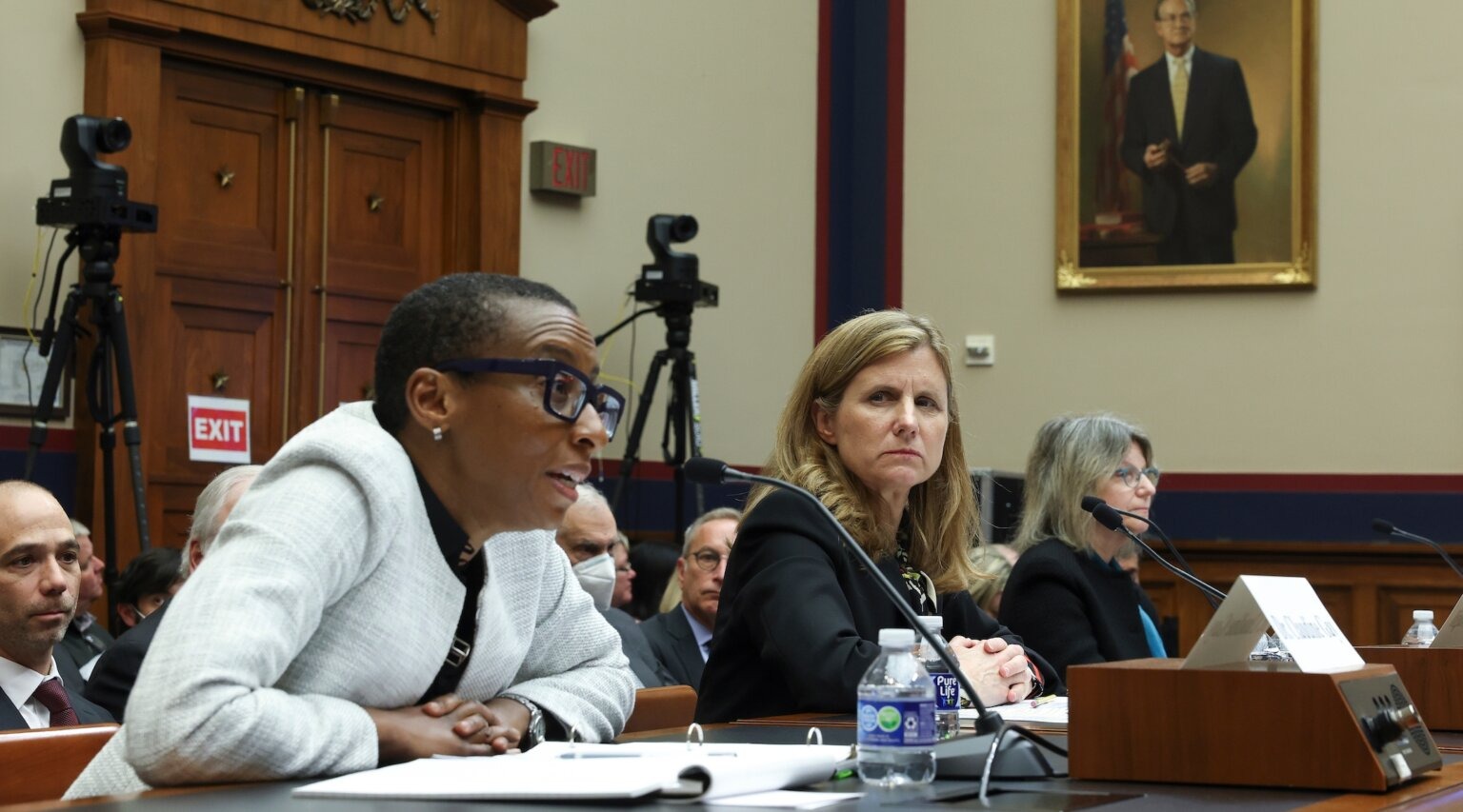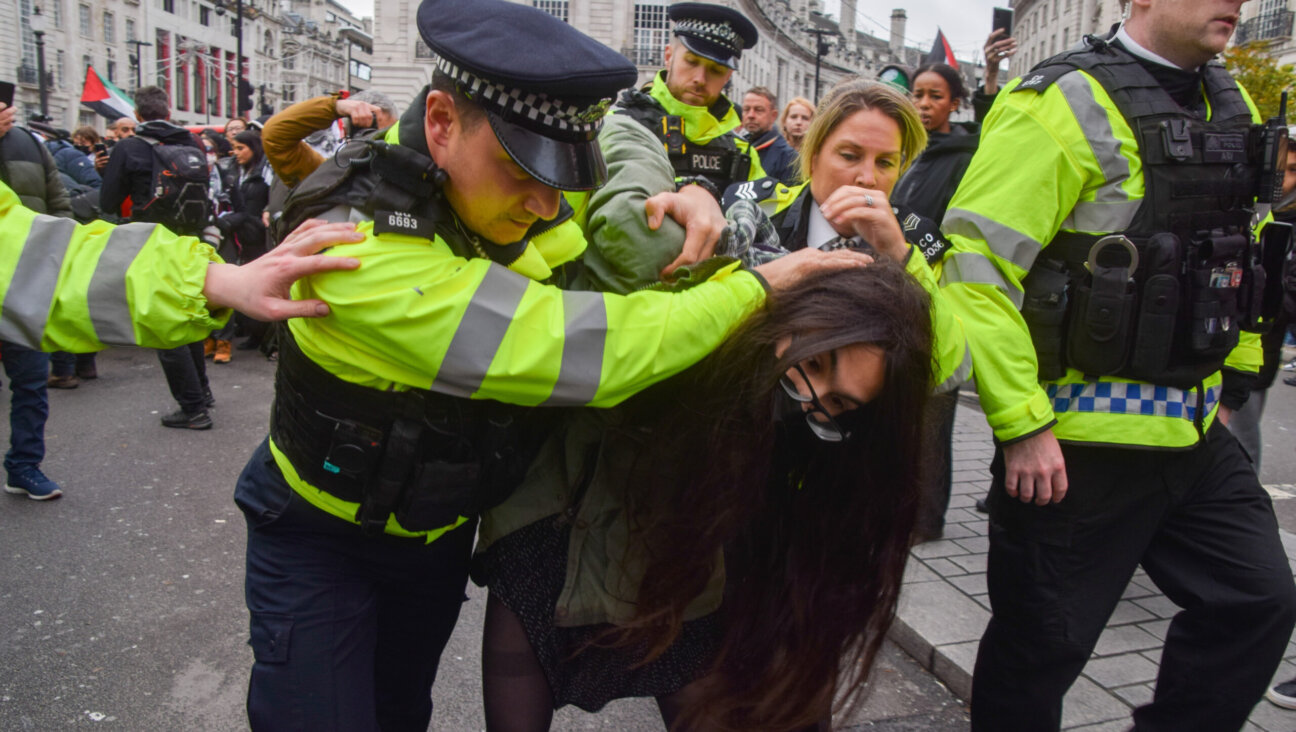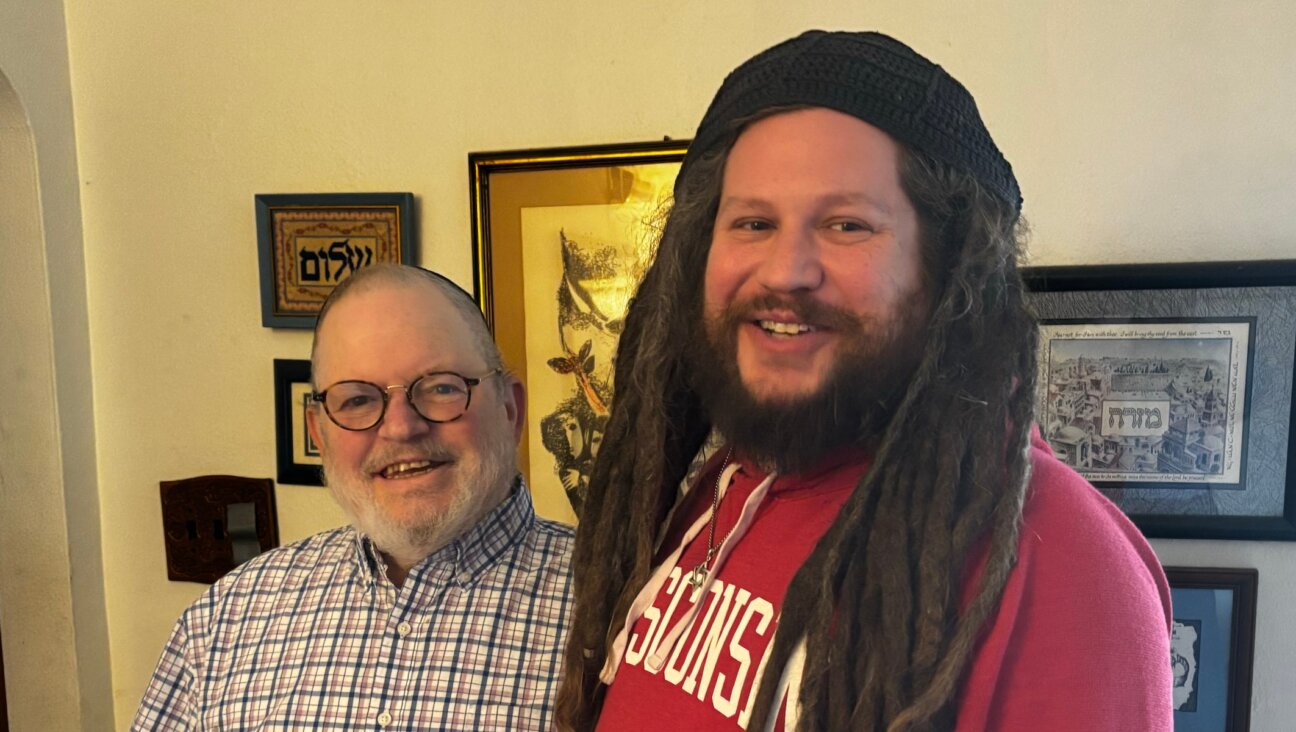Harvard students involved in pro-Palestine walkout and protest face disciplinary action
Undergrads cited for disruptive activities as university president Claudine Gay faces pressure to resign

Left to right: Claudine Gay, president of Harvard, Liz Magill, president of the University of Pennsylvania, and Sally Kornbluth, president of MIT, testified before Congress on Tuesday about antisemitism on campus. Photo by Getty Images
Several Harvard students said they face disciplinary hearings because of pro-Palestine activities on campus that the school considers disruptive.
The Harvard Crimson reported that Prince A. Williams ’25 and Kojo Acheampong ’26 disclosed the disciplinary action by the school’s Administrative Board during a pro-Palestine rally Sunday.
The Crimson said the pair led students out of classrooms during a November week of pro-Palestine activism on campus while chanting with megaphones, “From the river to the sea, Palestine will be free,” and “Free, free Palestine.” Williams and Acheampong are members of the African and African American Resistance Organization, which helped organize the protest.
“We understand that this Ad Boarding, these attacks, simply justify why we’re in this struggle,” Acheampong was quoted as saying.
Controversy over Harvard president
The cases involving the students came to light amid controversy over Harvard’s president, Claudine Gay, who faces pressure to resign. In congressional testimony last week, Gay and the presidents of MIT and the University of Pennsylvania equivocated when asked by Rep. Elise Stefanik, a Harvard alumna, if “calling for the genocide of Jews” violated their schools’ codes of conduct.
Gay’s answer was, “It can be, depending on the context.” Liz Magill, the president of UPenn, resigned after giving a similar answer. But Gay’s tenure has been bolstered by support from 570 professors who signed a statement asking administrators to ignore political pressure and keep her in her job.
Gay later apologized for her comments, telling the Crimson, “When words amplify distress and pain, I don’t know how you could feel anything but regret.” Gay has served as Harvard president for less than six months and is the first Black woman to do so.
U.S. campuses nationwide have erupted with antiwar, anti-Israel and antisemitic activism since Oct. 7, when Hamas murdered 1,200 people and kidnapped 240 in surprise attacks on kibbutzim and a music festival in Israel. Israel responded by bombing and invading Gaza in a campaign that officials there say has killed more than 17,000 people.
Additional students face hearings
The Crimson said a third student, Syd D. Sanders ’24, also faces a disciplinary hearing from the board. The paper quoted a written statement from Sanders saying that he “was not involved in planning or organizing the walkout, and I did not disrupt any classes or break any school rules that I am aware of. I simply walked out of a lecture at 11:30 and attended the consequent rally in the plaza. I did not speak on any megaphones, lead any chants, or say anything in the lecture.”
The Crimson said a fourth unnamed student faces a hearing as well. The students could not be reached for comment. A Harvard spokesperson said the university does not comment on “student matters.”
In November, eight students affiliated with Harvard Jews for Palestine faced disciplinary hearings after participating in a 24-hour occupation of a Harvard building.
Rare for students to be kicked out
The administrative board describes its mission in part as investigating “instances when students’ behavior may violate the College’s expectations around social conduct. These include instances of physical violence, harassment, theft, property damage, and dishonesty.”
The university’s statement of rights and responsibilities further specifies that while Harvard upholds “freedom of speech and academic freedom, freedom from personal force and violence, and freedom of movement,” any “interference with any of these freedoms must be regarded as a serious violation of the personal rights upon which the community is based.” The board’s proceedings are confidential, but its self-stated goal is to “help students understand the rules and the consequences of their actions.” Only in “the rarest of circumstances” do students involved in disciplinary cases fail to graduate.
A message from our Publisher & CEO Rachel Fishman Feddersen

I hope you appreciated this article. Before you go, I’d like to ask you to please support the Forward’s award-winning, nonprofit journalism so that we can be prepared for whatever news 2025 brings.
At a time when other newsrooms are closing or cutting back, the Forward has removed its paywall and invested additional resources to report on the ground from Israel and around the U.S. on the impact of the war, rising antisemitism and polarized discourse.
Readers like you make it all possible. Support our work by becoming a Forward Member and connect with our journalism and your community.
— Rachel Fishman Feddersen, Publisher and CEO






















